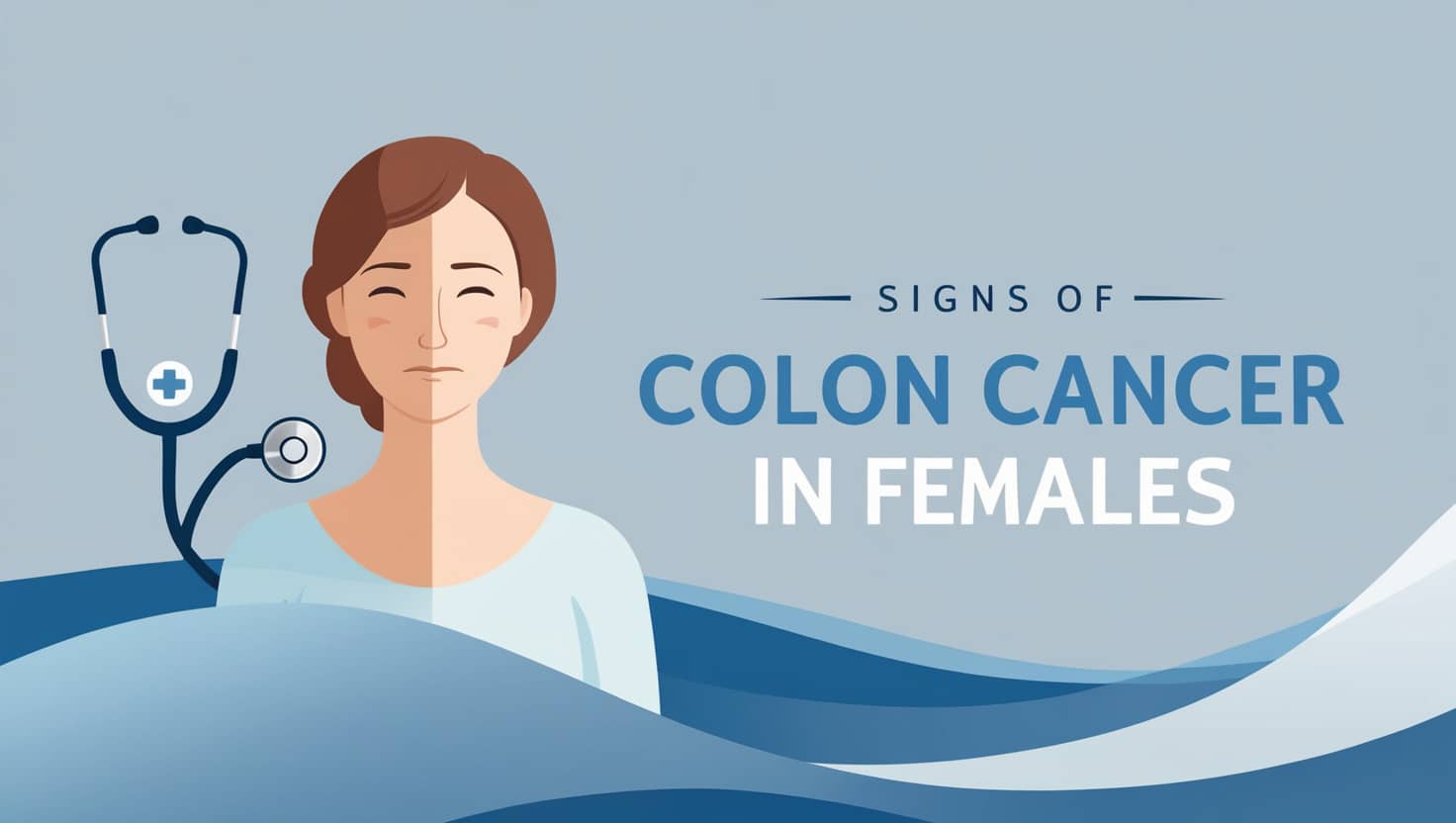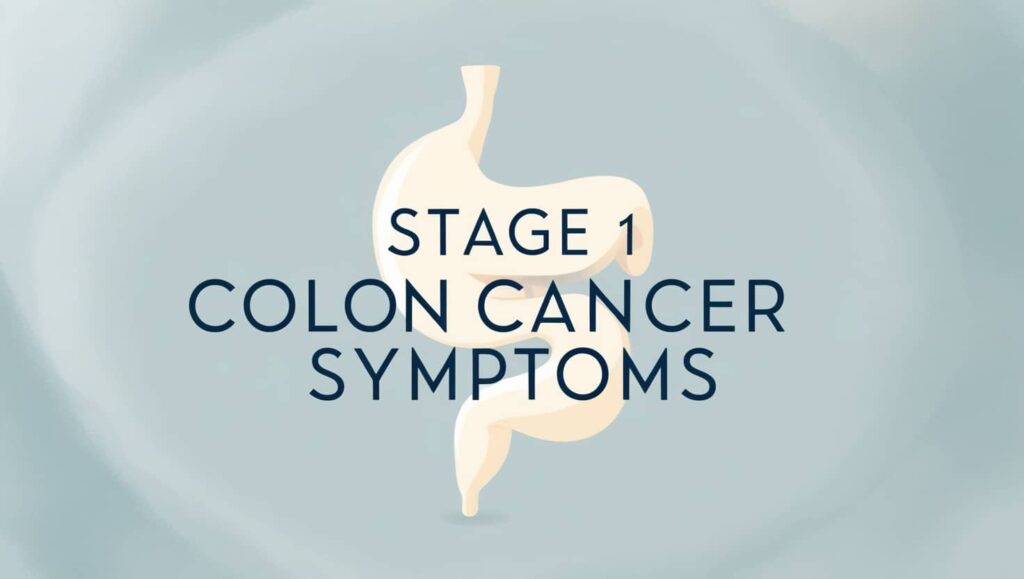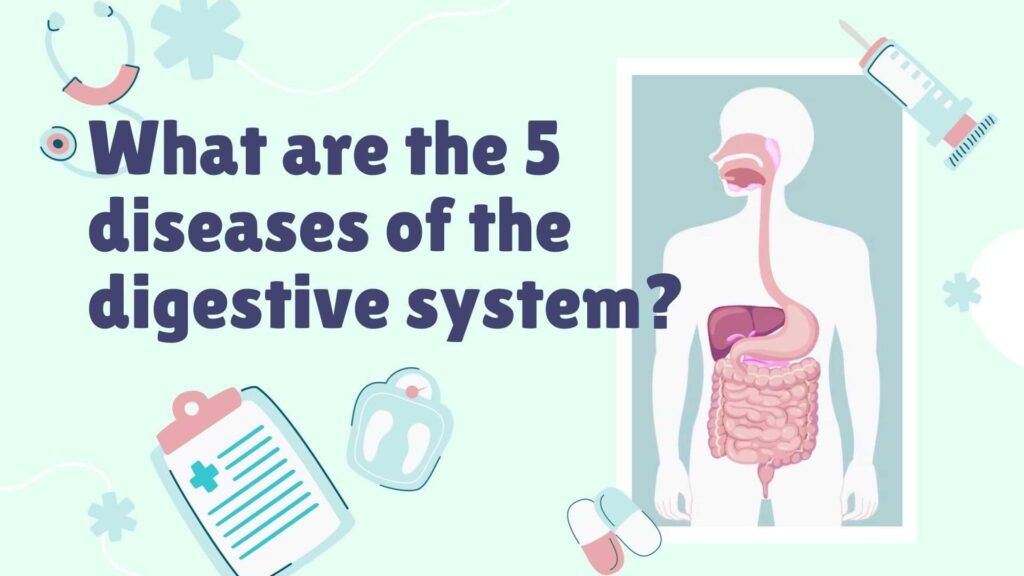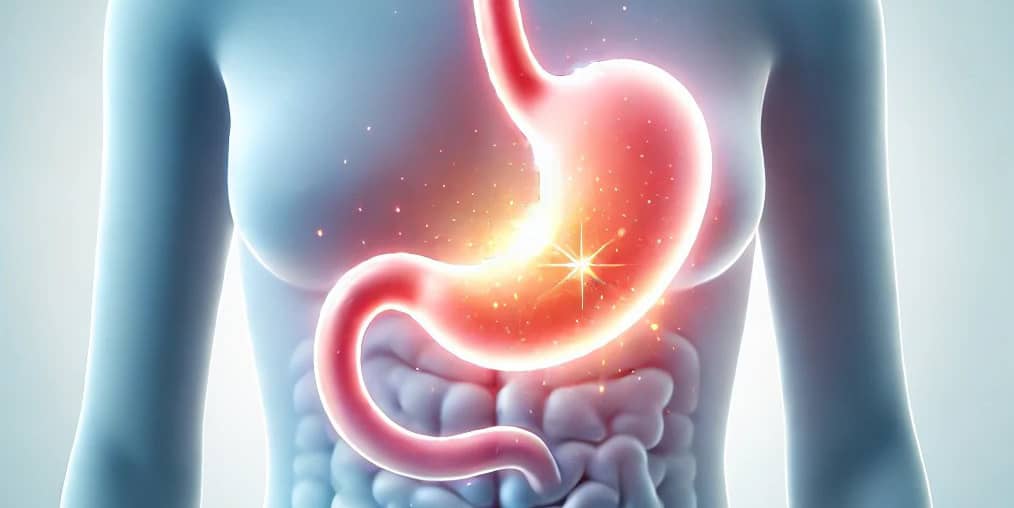Colon cancer is a type of cancer that affects the large intestine, and begins with the growth of polyps in the inner lining of the large intestine.
Thank you for reading this post, don't forget to subscribe!These polyps are initially tissues that can be detected and removed with modern means before they turn into cancer cells and move to other areas of the body.
Through this article, we will review together the most important signs of colon cancer in females for early detection, receiving treatment, and increasing the chances of surviving the disease.
Early Warning Signs Unique to Women
Colon cancer does not exhibit unique symptoms in women, and its symptoms are the same regardless of gender.
These symptoms include:
Blood in the stool: it is a sign that does not necessarily mean the presence of colon cancer, but it may also occur as a result of an anal fissure or hemorrhoids, and the red color may appear as a result of eating beets. In any case, a doctor should be consulted if blood appears in the stool and the necessary tests should be performed.
Persistent changes in bowel habits: One of the most common initial symptoms of the disease is chronic constipation or diarrhea, or the inability to completely empty the colon, which is a symptom that can occur as a result of some health problems, including colon cancer.
Abdominal pain: Especially if the cause of the pain is unknown or the pain is frequent or unbearable, it may be a symptom of colon cancer.
Bloated stomach: especially if it lasts for more than a week and is accompanied by other symptoms such as vomiting or blood in the stool.
Vomiting: which occurs periodically and for unknown reasons, could be a sign of colon cancer.
Unexplained weight loss: Even if you do not change your eating habits or make attempts to lose weight.
Fatigue and shortness of breath: It is a symptom of colon cancer due to blood loss.
All of the above symptoms can have many causes, and it is best to consult a doctor and undergo the necessary tests if you suffer from some of them. (Ballinger & Anggiansah, 2007)
Changes in Bowel Habits to Monitor
Here are the most important changes in bowel habits as one of the signs of colon cancer in females and males:
Change in bowel consistency: The stool may become thinner, looser, or harder than usual.
Change in bowel frequency: This can include increased frequency (diarrhea) or decreased frequency (constipation).
Straining during bowel movements: This may indicate constipation or a blockage in the intestine.
Incomplete bowel emptying: This feeling of not fully emptying the bowels after a bowel movement.
Blood in the stool: Blood may be visible or hidden in the stool and can be light or dark in color.
Read Also: Symptoms of Lung Cancer in Females
Fatigue and Anemia: A Closer Look
The feeling of Fatigue is closely linked to the development of anemia and it is also one of the symptoms of colon cancer.
One of the most important causes of iron deficiency anemia is blood loss.
Blood loss through the colon is a symptom of colon cancer.
Blood loss means a deficiency of hemoglobin, which nourishes the body’s cells and tissues with oxygen, or a deficiency or insufficient number of red blood cell.
This causes a group of symptoms such as fatigue, exhaustion, and shortness of breath due to the lack of oxygen reaching the cells.
Abdominal Symptoms and Their Meaning
Here are the Abdominal symptoms that indicate the possibility of colon cancer and their meaning:
Persistent Abdominal Discomfort or Pain: It means the presence of pain or cramps, especially in the lower part of the abdomen.
Changes in Bowel Habits: This means infrequent defecation and difficulty excreting it as a result of constipation, or frequent defecation due to diarrhea, or alternating the two conditions.
Rectal Bleeding: This means the presence of blood in the stool, whether light or dark.
Incomplete Bowel Evacuation: Always feeling like you were not able to empty your rectum completely.
Abdominal Bloating and Distention: This means that you suffer from abdominal gas and a feeling of discomfort in that area.
Importance of Preventative Screenings
When you feel signs of colon cancer in females and males, you should perform some tests that help you detect the disease early and improve your chances of survival for the following reasons:
Identifying Precancerous Polyps: These polyps can be removed before they turn into cancerous cells.
Early detection of cancer: If the disease appears, the chances of treating it are always better in its early stages.
Reducing Mortality Rates: Early detection of the disease reduces the mortality rates resulting from its occurrence. (Astin, Griffin, Neal , Rose, & Hamilton , 2011)
Read Also: Stage 1 Cervical Cancer Symptoms
References
Astin, M., Griffin, T., Neal , R. D., Rose, P., & Hamilton , W. (2011). British Journal Of General Practice. Retrieved from The diagnostic value of symptoms for colorectal cancer in primary care: a systematic review: https://pmc.ncbi.nlm.nih.gov/articles/PMC3080228/
Ballinger , A. B., & Anggiansah, C. (2007). PubMed. Retrieved from Colorectal cancer: https://pmc.ncbi.nlm.nih.gov/articles/PMC2001051/







